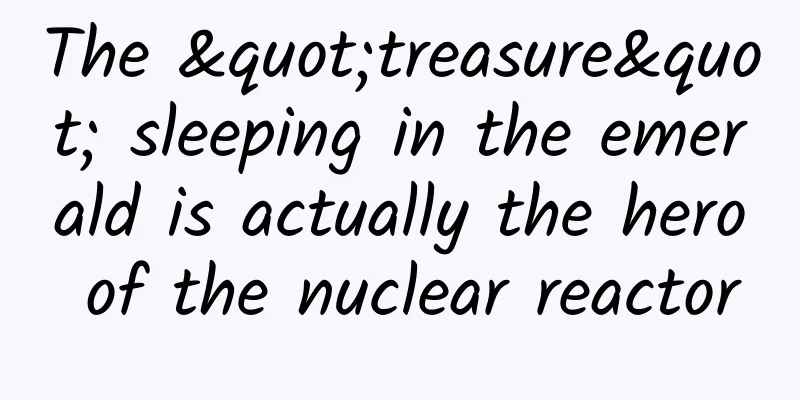Where are hybrid cars headed?

|
On June 13, the Legislative Affairs Office of the State Council issued the "Measures for the Parallel Management of Passenger Car Enterprises' Average Fuel Consumption and New Energy Vehicle Credits (Draft for Comments)" drafted by the Ministry of Industry and Information Technology, causing further turmoil in the already turbulent automobile industry. This is the second update within a year since the Ministry of Industry and Information Technology first issued a draft for soliciting opinions on the "double points system" of "fuel consumption + new energy points" for automakers in September last year. The original intention of the management method to promote the development of electric vehicles will undoubtedly bring considerable pressure to automakers with fewer layouts in the new energy field. At the same time, considering that multinational automakers will accelerate the introduction of products to meet the points requirements, the competition in the new energy vehicle market will be more intense in the future. Against this background, the future of hybrid vehicles, which are located between fuel vehicles and electric vehicles, seems even more confusing. Hybrid electric vehicles spark controversy In the view of Yin Chengliang, vice dean of the School of Mechanical and Power Engineering at Shanghai Jiao Tong University, there is another big background for discussing the future of hybrid vehicles, which is that in another three years, government subsidies for electric vehicles will be completely cancelled. "In the past, hybrid vehicles were positioned as energy-saving vehicles and received no subsidies. Automakers flocked to electric vehicles and plug-in hybrid vehicles in order to get subsidies. Three years later, all subsidies are gone. Is it possible for hybrid vehicles to develop?" Yin Chengliang posed this question to the guests at the 9th China Automotive Blue Book Forum. Tian Feng, vice president of ZTE New Energy and vice president of ZTE Smart Auto, which focuses on pure electric vehicles, enumerated the disadvantages of hybrid vehicles: high engineering complexity, heavy body due to two power systems, poor reliability, increased costs and unsatisfactory actual fuel-saving effects. Based on these observations, he "believes that hybrid vehicles are just transitional products." Derun Electronics, which produces and sells auto parts, has produced some evidence to support Tian Feng's view. Wang Dapeng, vice president of Derun Electronics, said that the choice of parts by major international automakers and companies proves that "the auto industry is moving more towards pure electric vehicles," and put forward the view that "when all bottlenecks of electric vehicles are solved, pure electric vehicles will become the ultimate direction and hybrid vehicles will have no market." Different opinions are also very clear. "If this problem is in the United States or Japan, it is not a problem. Now the global sales of hybrid vehicles in the hundreds of thousands have proved the market for hybrid vehicles." Wang Yanbin, general manager of Corun Hybrid Technology Co., Ltd., is a firm supporter of hybrid vehicles. He believes that with the decline of state subsidies for electric vehicles, hybrid vehicles "will definitely have a good development in China." Xu Xingyi, president of Shanghai Dajun Power Control Technology Co., Ltd., has a relatively neutral view on the development prospects of electric and hybrid vehicles, but he pointed out that due to the existence of constraints such as battery life and charging facilities, electric vehicles may not be able to fully meet user requirements for a considerable period of time. Based on such considerations, he believes that "hybrid power systems will have a certain vitality." Hybrid system is "too complex" to be solved Without exception, all the criticisms made by the “big guys” about the development prospects of hybrid power point to the fact that the hybrid power system is “too complicated”. "Hybrid power does have complexity issues, but the entry of plug-in vehicles and hybrid electric vehicles into the market has fully demonstrated that hybrid technology is mature and reliable." Wang Yanbin said that no one knows how long the "transition period" from fuel vehicles to electric vehicles will take, perhaps 10 or 20 years, but the hybrid market is already "very hot." Wang Yanbin also mentioned that with the implementation of the "double points system" and the national target of capping the average fuel consumption of automobiles at 5 liters per 100 kilometers by 2020, traditional fuel vehicles, which account for the majority of the market, "cannot drop from high fuel consumption to 0 all at once." This slow decline process is an opportunity for hybrid vehicles. "Considering that fuel-powered vehicles still account for a very large proportion, hybrid vehicles will definitely have a good development in the next two to three years," said Wang Yanbin. The reporter learned that at present, sports utility vehicles (SUVs) are extremely popular in China, which has also prompted car companies to plan to produce SUV models. This has directly led to an increase in the average fuel consumption of traditional cars. "It is true that hybrid power is too complex, which is the reason why hybrid power is not well developed in my country. But on the other hand, if domestic car companies overcome the difficulties in hybrid power systems, it will also be the key to improving the competitiveness of my country's automobile industry." Xu Xingyi said that from this perspective, the development of hybrid vehicles is "very necessary." Xu Xingyi also said that affirming the development opportunities of hybrid vehicles does not mean being pessimistic about the technical development of pure electric vehicles. On the contrary, pure electric vehicles currently have good technical development opportunities and should seize the opportunity and develop vigorously. However, for a long time, hybrid vehicles can better meet user needs, and mainstream hybrid technology should also receive sufficient attention. Hybrid, electric, driving each other? However, the embarrassing situation of hybrid vehicles is that, despite the high public demand and the related parts production and power model research and development in China, there is no real domestic brand hybrid model in China. In the foreseeable three years, the subsidies for pure electric vehicles will decline to zero. Will there be domestic brand hybrid vehicles by then? Interestingly, Tian Feng and Wang Dapeng, who are pessimistic about hybrid vehicles, both expressed their view that China's own brand of hybrid vehicles will appear in the auto market in three years, but their reasons are more "cunning" than each other: Tian Feng believes that by then "battery technology should have a major breakthrough" and will assist the development of hybrid models; Wang Dapeng believes that the technology of on-board charger products will mature within the deadline, which will also promote changes in the entire auto industry. Compared with the "optimism" of the above two, Wang Yanbin is not optimistic about electric vehicle technology. "Electric technology is indeed very good, but it also faces problems such as technological improvement, safety of lithium-ion batteries, capacity and charging inconvenience." When talking about hybrid systems, he believes that they have now passed the "difficult period without government subsidies" and will have better development in the future. In Wang Yanbin's view, energy-saving oil-electric hybrid systems, plug-in hybrid systems, and pure electric drive systems will coexist, with both competition and "integration". The three will drive each other and are likely to be "on an equal footing" in the future, but "it will still depend on the market to decide." However, judging from the "dual points system" of "fuel consumption + new energy points" promoted by the two departments, the government will further promote the development of new energy vehicles at the policy level. Fuel consumption points and new energy points may become a new opportunity to replace purchase subsidies and become the development of new energy vehicle companies. However, the government's signal also implies "reducing fuel consumption" in addition to further developing new energy. In addition, the reporter learned that the industry generally reflects that the implementation of the "double points system" is very difficult, and these factors also leave more room for imagination for hybrid system vehicles. As a winner of Toutiao's Qingyun Plan and Baijiahao's Bai+ Plan, the 2019 Baidu Digital Author of the Year, the Baijiahao's Most Popular Author in the Technology Field, the 2019 Sogou Technology and Culture Author, and the 2021 Baijiahao Quarterly Influential Creator, he has won many awards, including the 2013 Sohu Best Industry Media Person, the 2015 China New Media Entrepreneurship Competition Beijing Third Place, the 2015 Guangmang Experience Award, the 2015 China New Media Entrepreneurship Competition Finals Third Place, and the 2018 Baidu Dynamic Annual Powerful Celebrity. |
>>: Xiaomi releases mobile phone processor: worth 100 million yuan, still born for enthusiasts!
Recommend
The story behind the world's first lunar soil sampling
380,000 km is the distance from the Earth to the ...
Lessons from Momo’s overseas market promotion!
On August 27, Momo released its second quarter 20...
An alien spaceship passed through the solar system. Scientists plan to catch up with it.
This article was reviewed by Liu Yan, Space Appli...
It’s time for the “Queen of Fruits” to show off again, but I really don’t recommend you to “praise” it
Mangosteen is known as the "Queen of Fruits&...
Fairy shrimps were discovered in Jiangsu, and they have existed for 200 million years! More important than whether they can be eaten is...
Expert of this article: Liu Yadan, researcher, de...
How to place Douyin advertisements and promote Dou+ on Douyin for best results?
Douyin advertising, Douyin promotion Dou+ is Douy...
Yan Ning: The more unique you are, the broader your world will be | Where have the female scientists gone?
At the end of 2022, the 8th Women Scientists Foru...
How to fine-tune the operation of private domain traffic in the education and training industry?
Recently, experts in the education and training i...
16 types of cheese sticks for children tested: high in sugar and fat, not recommended for consumption
Have you ever bought cheese sticks for your kids?...
LeTV Cast and Horion start innovative integration and cross-screen collaboration
In today's fast-growing business environment,...
China Passenger Car Association: The wholesale sales volume of new energy passenger vehicles manufacturers in September 2022 is estimated to be 664,000 units, an increase of about 5% month-on-month
The China Passenger Car Association announced the...
WeChat Reading’s 7 user invitation mechanisms!
I read books on WeChat Reading quite often. It ma...
8 zeros appeared in Hubei for the first time! Which 8 specifically? What's the point? Details attached!
Wuhan is the outbreak point of the new coronaviru...
It’s the end of the year, think about which unchanging marketing rules we should grasp in 2017!
The 5 points in the article are what the author tr...
A new way to accurately attract traffic from Himalaya Audio!
Everyone knows that Himalaya has over 100 million...









